Larisa DeSantis
-
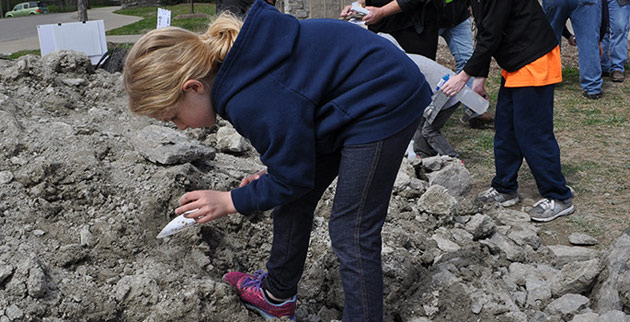
Vanderbilt students offer firsthand look at Nashville’s distant past during Fossils at the Fort April 7
Kids of all ages can find and take home a 400-million-year-old souvenir and learn all about the hunt for clues to the ancient past at Fort Negley April 7. Read MoreMar 22, 2018
-
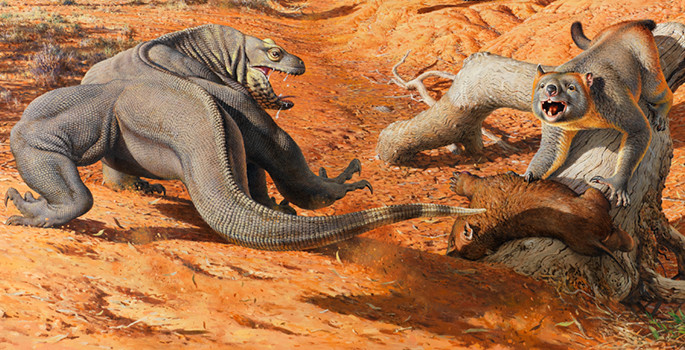
Climate change took away ancient animals’ food supply; holds implications for today’s wildlife
Analysis suggests that climate change had a significant impact on megafauna diets and was a primary factor in their extinction. Read MoreJun 2, 2017
-
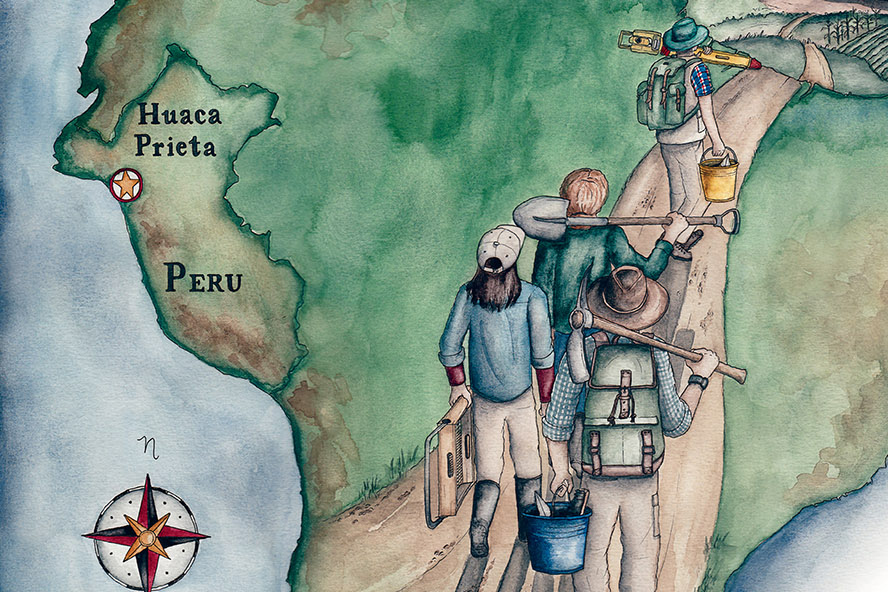
Dark Side of the Mound: Vanderbilt researchers unearth clues to a mysterious Peruvian archaeological site
ILLUSTRATION BY CANDACE ROSE RARDON About 7,500 years ago a construction project of almost unfathomable scope began taking shape along the Pacific coast of what is today northern Peru. Initially a low-lying ceremonial mound, it would become in 4,000 years’ time a monument of staggering size—100 feet tall,… Read MoreMay 29, 2017
-

The tale teeth tell about the legendary man-eating lions of Tsavo
Analysis of the microscopic wear on the teeth of three man-eating lions reveals that painful dental disease may have been what drove the cats to hunt humans instead of larger prey. Read MoreApr 19, 2017
-

Fossils at the Fort is March 25
Fossils at the Fort is happening on Saturday, March 25, from 10 a.m. to 1 p.m. at Fort Negley Visitors Center and Park. The event is free and will take place rain or shine. Read MoreMar 15, 2017
-

Climate change helped kill off super-sized Ice Age animals in Australia
A new study has compared the diet of a variety of Australian megafaunal herbivores from the period when they were widespread (350,000 to 570,000 years ago) to a period when they were in decline (30,000 to 40,000 years ago) by studying their fossil teeth. The analysis suggests that climate change had a significant impact on their diets and may well have been a primary factor in their extinction. Read MoreJan 26, 2017
-
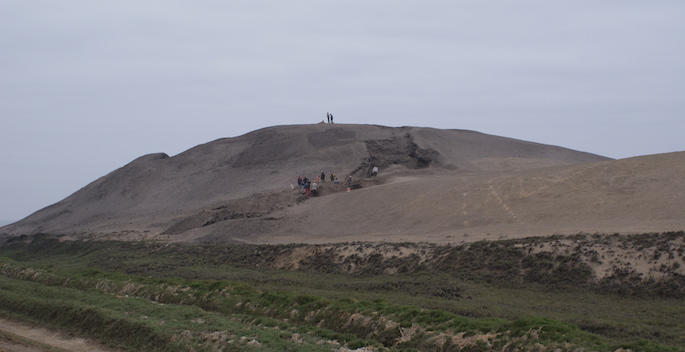
Vanderbilt excavation begins to shed more light on the lives of early Peruvians
Findings from archaeologist Tom Dillehay's dig at Huaca Prieta and Paredones include the world's earliest known use of indigo dye. Read MoreOct 4, 2016
-
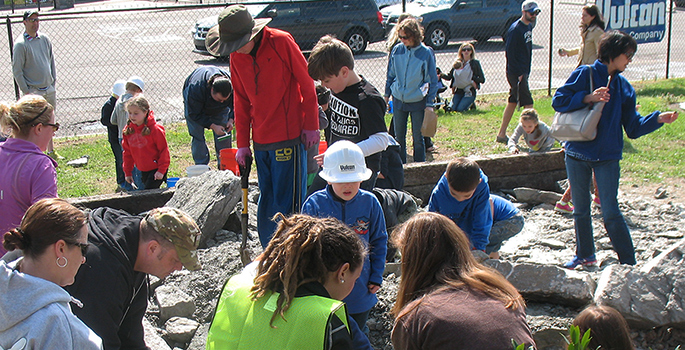
Fossils at the Fort is March 19
Fossils at the Fort is a free annual event providing young and old with an opportunity to journey into Middle Tennessee's astonishing ancient past. Read MoreMar 10, 2016
-

Kudos: Read about faculty, staff and student awards, appointments and achievements
Read about faculty, staff and student awards, appointments and achievements. Read MoreNov 23, 2015
-

VU paleontologist appears on Nat Geo Wild’s ‘Future Cat’ Nov. 30
Larisa DeSantis, assistant professor of Earth and environmental sciences, is a featured expert on Nat Geo Wild’s Future Cat, part of the network’s Big Cat week. Read MoreNov 28, 2014
-
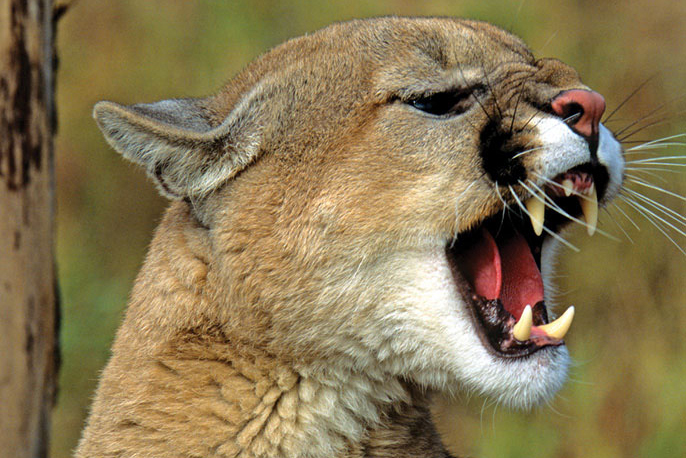
Research Roundup, Summer 2014
Private Property and Government Inaction | Probiotic Could Prevent Obesity | Freedom from Power Cords | Pickiness Doesn’t Always Pay Read MoreSep 26, 2014
-
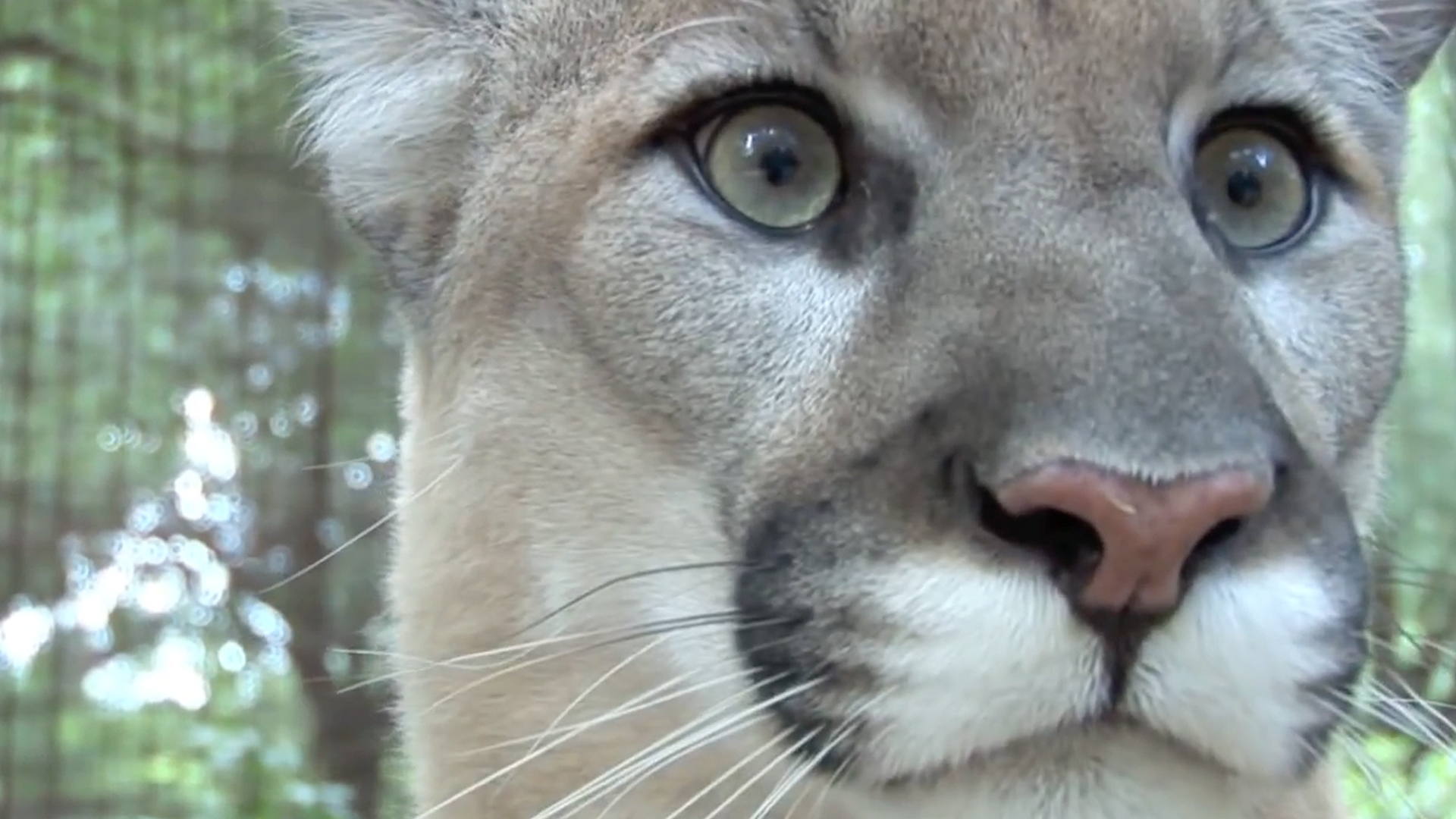
VUCast: Cougar Cravings
In the latest VUCast: See what cougars eat to help them avoid extinction; look inside Warren and Moore colleges, Vanderbilt’s newest living-learning community; and hear what Commodore football coaches are doing to create a winning team. Watch now! Read MoreJul 29, 2014
-
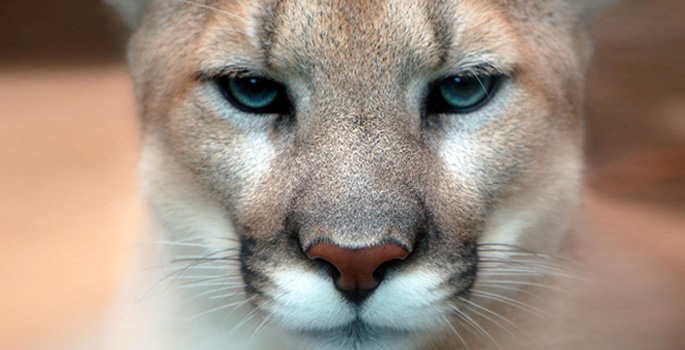
Cougars’ diverse diet helped them survive the mass extinction that wiped out the saber-tooth cat, American lion
Cougars may have survived a mass extinction that took place about 12,000 years ago because they were not particular about what they ate. Read MoreApr 22, 2014
-
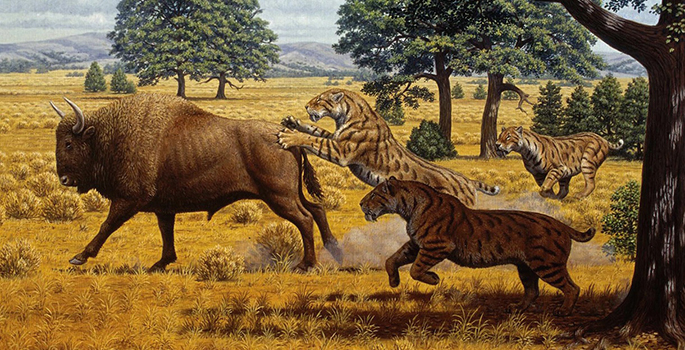
Academic Minute: Larisa DeSantis on “Megafauna diets and extinction”
In today’s Academic Minute, Dr. Larisa DeSantis of Vanderbilt University reveals what North America’s largest predators were eating just before they died out. Read MoreFeb 18, 2013
-

Evidence shows starvation did not cause saber-tooth cat extinction
The latest study of the microscopic wear patterns on the teeth of the American lions and saber-toothed cats that roamed North America in the late Pleistocene found that they were living well off the fat of the land in the period just before they went extinct. Read MoreDec 26, 2012
-
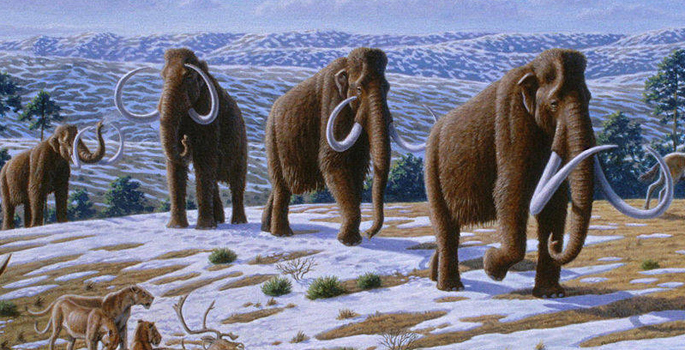
Diversity aided mammals’ survival over deep time
The first study of how mammals in North America adapted to climate change in “deep time” found that taxonomical families with greater diversity were more stable and maintained larger ranges than less diverse families. Read MoreApr 23, 2012